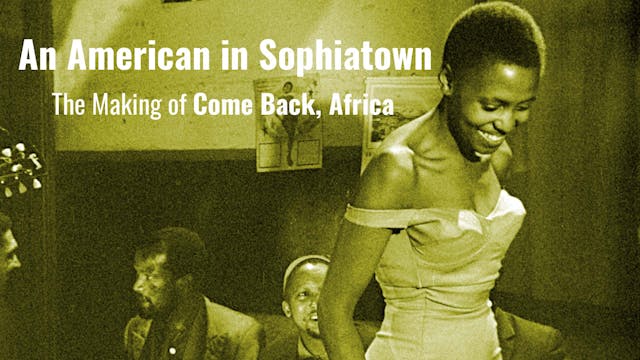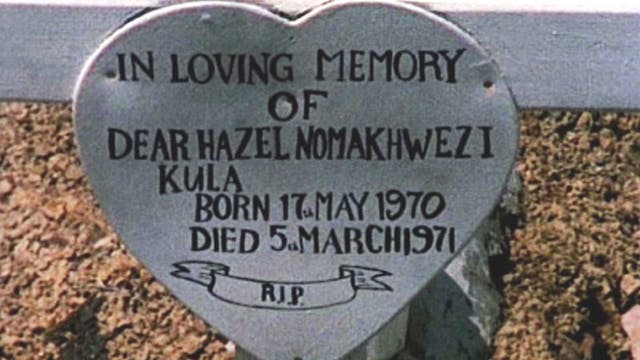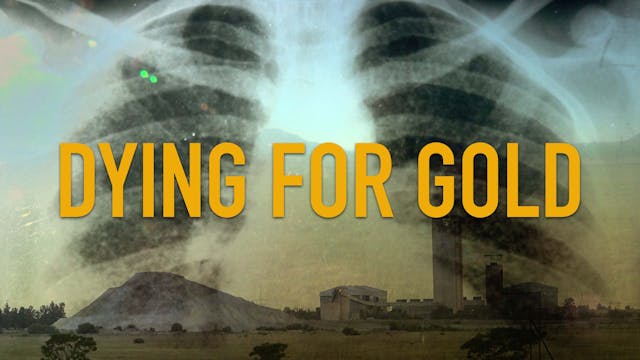Come Back, Africa
South Africa
•
1h 25m
Directed by Lionel Rogosin • Drama • With Zacharia Mgabi, Vinah Bendile, Miriam Makeba • 1959 • 86 minutes
Lionel Rogosin’s 1959 powerful classic Come Back, Africa is one of the bravest and best of all political films. After witnessing firsthand the terrors of fascism as a soldier in World War II, Lionel Rogosin vowed to fight against it wherever and whenever he saw it reemerging. In an effort to expose “what people try to avoid seeing,” Rogosin travelled to South Africa and secretly filmed Come Back, Africa, which revealed the cruelty and injustice suffered by black and colored peoples under apartheid.
Much of Come Back, Africa was filmed in Sophiatown, a ghetto reserved for blacks and a vibrant center of music, art, literature and politics that has since become legendary. Residents included Desmond Tutu, Nelson Mandela, and three of the film’s main contributors – author/journalists Bloke Modisane and Can Themba and the already celebrated singer, Miriam Makeba. But even as they filmed, Sophiatown was already in the process of being demolished and its residents forcibly removed. Shortly after production ended, Sophiatown was emptied, razed and rebuilt as a whites-only suburb called Triumf. In making Come Back, Africa, Rogosin’s goal was to reveal the harsh injustice of apartheid. In order to make a film that honestly and accurately portrayed the life of people in Sophiatown (as he did with his first film, On the Bowery), the filmmaker spent almost a year meeting with activists and writers, both black and white. Rogosin cast the film before writing the screenplay, basing the story on the experiences of the cast and crew. The final script was little more than a sketch of plot points; the actors created their own dialogue in order to create an authentic representation of their lives.
Up Next in South Africa
-
An American in Sophiatown: The Making...
Directed by Lloyd Ross • Documentary • 2007 • 52 minutes
An American in Sophiatown puts Come Back, Africa into the context of the time it was made ( 1957-1958) - recreating the sense of danger, the intrigues which were necessary to make the film under the nose of the apartheid regime. We come to...
-
Last Grave at Dimbaza
Directed by Chris Curling and Pascoe Macfarlane • Documentary • 1974 • 55 minutes
In 1969, a small group of South African exiles and British film students formed Morena Films in London to produce films about apartheid. By 1974, they produced one of the first, and certainly the most influential, ...
-
Dying for Gold
Directed by Catherine Meyburgh & Richard Pakleppa • Documentary • 2019 • 98 minutes
In the biggest class action law suit the country had ever seen, South Africa’s largest gold mining companies were accused of knowingly exposing miners to deadly dust and disease.
Now, harrowing underground f...




